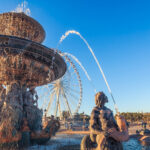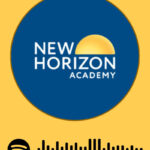This year has been marked by numerous sorrows, both in my own life and in the wider world. The uncertainty of tomorrow is ever-present, making every moment with family, near or far, feel precious. Gratitude for their love and hope for their well-being are constants in my thoughts, especially as Father’s Day approaches, coinciding, as it often does, with my birthday.
* * *
My earliest memories are filled with music and movement. As children, my sister and I transformed our living room into a stage, armed with pots and pans for drums and spoons as makeshift microphones. We’d giggle and sway, toddlers lost in the rhythm, our mother laughing and praising our “扭屁股” – our wiggling bottoms.
My father’s musical tastes were exactly what you’d expect from a dad of his generation. Broadway musicals were his morning anthem, much to my teenage chagrin. The sounds of Rodgers and Hammerstein would blast through the walls, a not-so-subtle wake-up call. While I pretended to groan and covered my ears, secretly, I absorbed every lyric of “The King and I,” “The Sound of Music,” and “Fiddler on the Roof.” Peter, Paul and Mary cassettes were on constant rotation, and he even enrolled us in guitar lessons to learn folk songs.
Yet, a distance remained, a chasm I couldn’t quite bridge. He embodied the stereotypical “Asian dad” – stoic and strict, directing me to the World Book Encyclopedia rather than directly answering my endless childhood questions. Much like the Broadway tunes that seemed to create a barrier, his career felt like another wedge between us. “Study harder” replaced “I love you.” Fear, not of cruelty, but of his imposing silence and strength, was my dominant emotion. I yearned for his approval, terrified of disappointing him. Perhaps, as a child, awe and fear were indistinguishable feelings towards such a figure.
He was a tireless worker, dedicated to helping others. His long hours meant our time together was scarce; he often left for work before I awoke and returned after I was asleep.
Years later, a lunch in Houston’s Chinatown offered a glimpse into a world of my father I hadn’t known. The restaurant owner, upon learning my father’s name during our Mandarin conversation, bowed deeply in respect. I was stunned. My interactions with my father were largely confined to his directives about behavior and academic performance. To witness this profound reverence for him within his community, to see him as a respected figure, almost regal, deeply moved me.
And then there’s the cliché memory, one that resonates precisely because of its universal warmth. Despite his demanding work schedule, I vividly recall the rare moments when he would place my tiny feet upon his, dancing me around the living room, singing in a Sinatra-esque voice, tinged with a charming Taiwanese accent. Whirling in the arms of my handsome, grinning father, I felt like the star of my own musical. It was in those fleeting moments, dancing with my father, that the stoic walls seemed to soften.
My parents arrived in America with little English, meeting as university students in South Carolina. A honeymoon was a luxury they never had. I often reflect with immense gratitude on their unspoken acceptance, if not outright encouragement, of my adventurous spirit and my desire to embrace life fully.
My mother, undoubtedly filled with worry, never truly hindered my wanderlust. From my first solo backpacking trip in Paris, dancing the polka along the Seine, to countless journeys since, I am grateful for the life they enabled. That Parisian promise to learn the polka led to ballroom dance classes in my senior year, filled with laughter and clumsy polka steps. A quiet determination grew within me: to one day share the world with my parents, to take them to places they couldn’t reach in their youth.
Last November, a casual text to my mother about dream destinations sparked a conversation about colorful India. Quickly, however, her focus shifted: “But first, New York City to see you.” Knowing her reluctance to accept gifts, I booked plane tickets that night, a covert operation of affection.
Despite her Texan and Taiwanese heat tolerance, my mother feared New York’s December chill, but bravely came anyway. Luck was on our side; benevolent sunshine graced their first visit to the city. Researching activities, an incredible coincidence emerged: “The King and I” was in revival at Lincoln Center. We seized the opportunity. I watched my father’s face during the performance, his silent absorption of a musical he’d cherished for decades. It was a shared moment, a quiet understanding passing between us through the music.
Afterward, I asked if he’d enjoyed the show. “Well, it didn’t put me to sleep,” he replied, a high compliment in my father’s understated language.
On their final day, we strolled through Central Park. Passing the Shakespeare statue, I reminisced about summer tango dances. During the “King and I” song “Shall We Dance?”, where Anna teaches the King the polka, inspiration struck.
“Dad,” I asked, a touch of childhood trepidation still present, “Would you like me to teach you to polka?”
Bracing myself for a stoic refusal – too public, too tiring, too embarrassing – I was met with outstretched hands. Slowly, I showed him the steps. And there, by the Shakespeare statue, we danced. Laughter and clumsy shuffles filled the air as I hummed a polka beat, breathlessly counting “one two three AND, one two three AND,” bathed in the December sunshine of New York City. In that moment, dancing with my father again, the years of unspoken emotions melted away. The King, and I.


